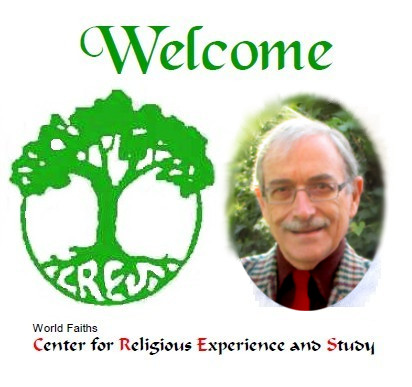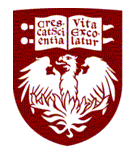When
he was President of the University of Chicago, Edward Levi was
repeatedly congratulated on the University’s sponsorship of the nuclear
testing initiative that supported the Manhattan Project.
Levi’s response: “Thank you, but any University presented the
opportunity would have done that. I’m proud of the fact that
our Press has committed to the Hittite dictionary.”
--RICHARD A. ROSENGARTEN Jan.
27, 2022
#CHICAGO_PRINCIPLES
CHICAGO PRINCIPLES
For a history of the Chicago Principles,
including in the Communist scare, visit this page
with fourteen historical markers of this academic tradition.
“There
is not an institution of learning in the country in which freedom of
teaching is more absolutely untrammeled than in the University of
Chicago.”
--William Rainey Harper,
First President of the University of Chicago
“We
do not support so-called trigger warnings, we do not cancel invited
speakers because their topics might prove controversial, and we do not
condone the creation of intellectual safe spaces where individuals can
retreat from ideas and perspectives at odds with their own.”
--Robert J. Zimmer,
13th president of the University of Chicago
“Concerns
about civility and mutual respect can never be used as a justification
for closing off discussion of ideas, however offensive or disagreeable
those ideas may be to some members of our community."
Main page and video:
1967 Kalven Report
the '69 protest
40 years later
2024
'The
University of Chicago has long adhered to the Kalven principles, a
statement of university neutrality articulated in 1967 by a committee
led by one of the most respected legal scholars of the last century,
Harry Kalven Jr. At their heart, the Kalven principles articulate the
view that “the instrument of dissent and criticism is the individual
faculty member or the individual student. The university is the home
and sponsor of critics; it is not itself the critic. It is, to go back
once again to the classic phrase, a community of scholars.”'
--David French, New York Times, Apr 28, 2024
Maroon's 2024 history of occupying buildings, tents
|
"To listen and understand; to question and disagree;
to treat no proposition as sacred and no objection as impious; to be willing
to entertain unpopular ideas and cultivate the habits of an open mind —
this is what I was encouraged to do by my teachers at the
University of Chicago.
"It’s what used to be called a liberal education.
"The University of Chicago
showed us something else: that every great idea is really just a spectacular
disagreement with some other great idea.
"Socrates quarrels with Homer. Aristotle quarrels
with Plato. Locke quarrels with Hobbes and Rousseau quarrels with them
both. Nietzsche quarrels with everyone. Wittgenstein quarrels with himself.
"These quarrels are never personal. Nor are they
particularly political, at least in the ordinary sense of politics. Sometimes
they take place over the distance of decades, even centuries.
"Most importantly, they are never based on a misunderstanding.
On the contrary, the disagreements arise from perfect comprehension; from
having chewed over the ideas of your intellectual opponent so thoroughly
that you can properly spit them out.
"In other words, to disagree well you must first
understand well. You have to read deeply, listen carefully, watch closely.
You need to grant your adversary moral respect; give him the intellectual
benefit of doubt; have sympathy for his motives and participate empathically
with his line of reasoning. And you need to allow for the possibility that
you might yet be persuaded of what he has to say."
.
" . . . about my college, the
University of Chicago.
They say that Chicago is a Baptist school where atheist
professors teach Jewish students St. Thomas Aquinas. That’s your
Interfaith America right there."
-- David Brooks
I went to college at a time and in a place
where many people believed that the great books, poems, paintings and
pieces of music really did hold the keys to the kingdom. If you studied
them carefully and thought about them deeply, they would improve your
taste, your judgments, your conduct.
Our professors at the
University of Chicago had sharpened their minds and renovated their
hearts by learning from and arguing against books. They burned with
intensity as they tried to convey what past authors and artists were
trying to say.
The teachers welcomed us into a great
conversation, traditions of dispute stretching back to Aeschylus,
Shakespeare, George Bernard Shaw, Clifford Odets. They held up visions
of excellence, people who had seen farther and deeper, such as
Augustine, Sylvia Plath and Richard Wright. They introduced us to the
range of moral ecologies that have been built over the centuries and
come down as sets of values by which we can choose to live — stoicism,
Buddhism, romanticism, rationalism, Marxism, liberalism, feminism.
The
message was that all of us could improve our taste and judgment by
becoming familiar with what was best — the greatest art, philosophy,
literature and history. And this journey toward wisdom was a lifelong
affair.
The hard sciences help us understand the natural world.
The social sciences help us measure behavior patterns across
populations. But culture and the liberal arts help us enter the
subjective experience of particular people: how this unique individual
felt; how this other one longed and suffered. We have the chance to
move with them, experience the world, a bit, the way they experience it.
|
|
The University of Chicago's unofficial motto is
"the place where fun comes to die."
Or to put it more simply: "That's all well and good
in practice . . . but how does it work in theory?"
The ["Reg" Library] holds ~4.5 million volumes,
including everything from 5th Century manuscripts to that obscure academic
book that was cited in a paper that was cited in a book that was cited
in a paper that was cited in a book that your thesis advisor suggested
you read this one chapter from.
What is graffiti at a UChicago restroom stall like?
Here's a sample: "The statement on the other side of this stall is false."
To which another scribe added: "The statement on the other side of this
stall is 'The statement on the other side of this
stall is false' is actually true."
Q. How common is sex among UChicago students?
A. If you stroke us, do we not roll our eyes back
in pleasure?
Q. Where in the library is the safest place to have
sex, least likely to be discovered?
A. In the Sports Illustrated section.
--
Statistics and Economics buttons include "Standard
deviant," "Enjoys random walks," "What's your production function?" and
"I have rational expectations."
--
‘If you’ve never met a student from the University of Chicago, I’ll describe him to you.
If you give him a glass of water, he says: ‘This is a glass of water.
But is it a glass of water? And if it is a glass of water, why is it a
glass of water?’ . . .
And eventually he dies of thirst.”
--Shelley Berman
UChgo humor
37
Things Only UChicago Students Understand
From the 1970s, including SVNA and nude swimming and football Kazoo players and brownian motion
|

